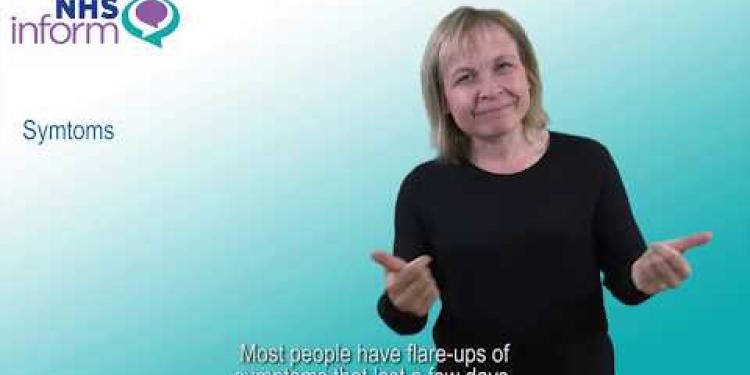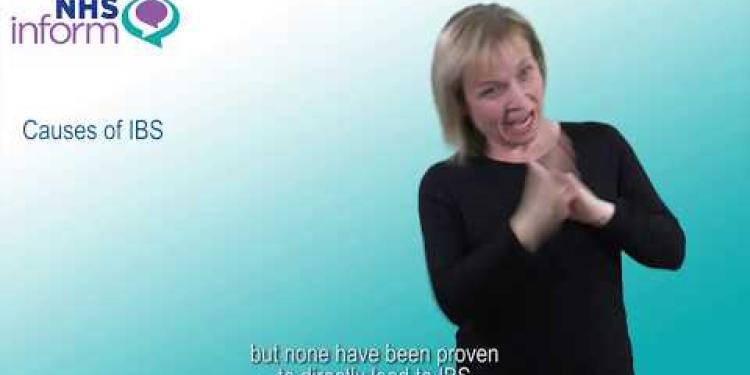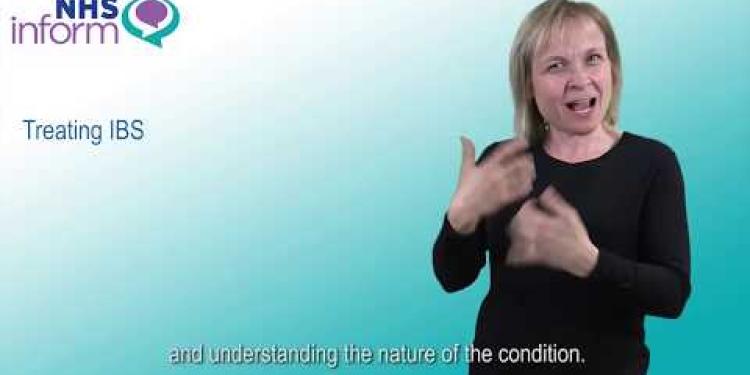Find A Supplier
About Irritable Bowel Syndrome (IBS)
What is IBS?
Irritable Bowel Syndrome (IBS) is a common, long-term condition of the digestive system. It affects the large intestine and is characterised by symptoms like abdominal pain, bloating, and changes in bowel habits. It is estimated that up to one in five people in the United Kingdom may experience IBS at some point in their lives, highlighting the importance of understanding and managing this condition.
Symptoms of IBS
The symptoms of IBS can be quite varied and may include cramping, abdominal pain, bloating, gas, and altered bowel habits such as diarrhoea, constipation, or a combination of both. These symptoms tend to come and go over time and can be mild or severe. Some people also experience other issues like feeling tired, nausea, and backache.
Causes and Triggers
The exact cause of IBS is not well understood, but it is believed to be related to a combination of abnormal gastrointestinal (GI) tract movements, increased sensitivity of the intestines, and the way the brain interacts with the gut. Common triggers include certain foods, stress, and hormonal changes. In the UK, foods that often aggravate IBS include fried foods, chocolate, alcohol, and caffeine.
Diagnosis and Treatment
Diagnosis of IBS primarily involves ruling out other conditions through a thorough medical history, physical examination, and sometimes additional tests such as blood tests, stool tests, and colonoscopy. As there is no cure for IBS, treatment focuses on managing symptoms. This may include dietary changes, lifestyle adjustments, medications, and psychological interventions. In the UK, resources like the NHS provide guidelines and support for managing IBS effectively.
Living with IBS
Living with IBS can be challenging, but many people find relief through tailored lifestyle and dietary changes. Keeping a food diary to identify and avoid triggers, regular exercise, and stress management techniques such as mindfulness or yoga can significantly improve the quality of life. Support groups and counselling can also provide valuable resources and emotional support.
Getting Support
If you suspect you have IBS, it is important to consult with a healthcare professional for an accurate diagnosis and personalised treatment plan. In the UK, services like the NHS offer comprehensive information and support for those living with IBS. Additionally, organisations such as The IBS Network provide ongoing support, practical advice, and connect individuals with others facing similar challenges.
Frequently Asked Questions
What is Irritable Bowel Syndrome (IBS)?
Irritable Bowel Syndrome (IBS) is a common gastrointestinal disorder that affects the large intestine, causing symptoms like abdominal pain, bloating, and changes in bowel habits.
What are the symptoms of IBS?
Common symptoms of IBS include abdominal pain, bloating, gas, diarrhea, constipation, or a combination of both. Symptoms can vary widely from person to person.
What causes IBS?
The exact cause of IBS is unknown, but it is believed to involve a combination of gut-brain axis issues, gastrointestinal motility problems, and heightened sensitivity to pain in the digestive tract.
How is IBS diagnosed?
IBS is usually diagnosed based on symptoms and by ruling out other conditions. A doctor may perform tests such as blood tests, stool tests, or a colonoscopy to exclude other conditions.
Can IBS be cured?
There is currently no cure for IBS, but its symptoms can be managed with lifestyle changes, diet, and medication.
What foods should be avoided with IBS?
Common trigger foods for IBS include fatty foods, spicy foods, dairy products, caffeine, and artificial sweeteners. Keeping a food diary can help identify personal triggers.
Can stress affect IBS?
Yes, stress can significantly impact IBS symptoms. Stress management techniques such as mindfulness, therapy, and relaxation exercises can help reduce symptom severity.
Are there any medications for IBS?
Yes, medications such as antispasmodics, laxatives, anti-diarrheal medications, and low-dose antidepressants can help manage IBS symptoms. Always consult a healthcare provider before starting any medication.
Is IBS more common in women or men?
IBS is more commonly diagnosed in women than men. Hormonal differences are thought to play a role in this discrepancy.
Can probiotics help with IBS?
Some people with IBS find relief from taking probiotics, which can help balance gut bacteria. However, the effectiveness varies from patient to patient.
How can diet changes help with IBS?
Diet changes like following a low FODMAP diet and keeping a food diary can help identify and avoid trigger foods, reducing IBS symptoms.
Are there any natural remedies for IBS?
Natural remedies such as peppermint oil, ginger, and chamomile tea may help alleviate some IBS symptoms. However, their effectiveness can vary and should be discussed with a healthcare provider.
Can exercise help manage IBS symptoms?
Yes, regular exercise can help reduce stress and improve bowel function, which may help alleviate IBS symptoms.
Is IBS linked to other digestive disorders?
IBS can sometimes be associated with other digestive disorders like gastroesophageal reflux disease (GERD) and celiac disease. It's important to get a proper diagnosis from a healthcare provider.
When should I see a doctor about IBS symptoms?
If you experience severe symptoms, a change in your usual symptoms, or symptoms such as weight loss, anemia, or blood in the stool, you should see a doctor promptly.
Useful Links
Useful links from: What is irritable bowel syndrome (IBS)?
- NHS - Irritable Bowel Syndrome (IBS) The NHS page provides comprehensive information on IBS including symptoms, causes, diagnosis, treatment, and living with the condition.
- IBS Network The IBS Network is a UK charity that offers support and information for people living with IBS. It includes resources such as forums, self-care plans, and dietary advice.
- Guts UK - IBS Guts UK provides detailed information on IBS including symptoms, treatments, and advice for managing the condition. The charity focuses on the digestive system and supports research in this area.
- Patient.info - Irritable Bowel Syndrome (IBS) Patient.info offers a detailed leaflet on IBS, covering symptoms, triggers, and treatment options. The site is written by UK doctors and experts providing trusted health information.
Useful links from: Symptoms of irritable bowel syndrome (IBS)
- NHS - Irritable Bowel Syndrome (IBS) Comprehensive guide on the symptoms, causes, and treatments of IBS provided by the NHS.
- Guts UK Charity - Irritable Bowel Syndrome (IBS) Guts UK Charity offers detailed information about IBS, including symptoms, diagnosis, and management strategies.
- The IBS Network - What is IBS? The IBS Network provides a wealth of resources on IBS, including symptom management, self-care tips, and support services.
- Bowel & Cancer Research - Understanding IBS Bowel & Cancer Research offers insights into IBS, focusing on research advancements, symptom information, and patient support.
Useful links from: Causes of irritable bowel syndrome (IBS)
- NHS - Irritable Bowel Syndrome (IBS) Comprehensive resource from the NHS detailing the symptoms, causes, diagnosis, and treatment options for IBS.
- IBS Network UK-based charity dedicated to supporting individuals with IBS. This page explains the potential causes and triggers of irritable bowel syndrome.
- Guts UK - IBS Guts UK charity provides information on various gut conditions including IBS, with detailed sections on its causes, symptoms, and management.
- NHS Inform - IBS Causes NHS Inform site offers detailed information on IBS in Scotland, including the causes and contributing factors.
Have you found an error, or do you have a link or some information you would like to share? Please let us know using the form below.
- Ergsy carfully checks the information in the videos we provide here.
- Videos shown by Youtube after a video has completed, have NOT been reviewed by ERGSY.
- To view, click the arrow in centre of video.
- Most of the videos you find here will have subtitles and/or closed captions available.
- You may need to turn these on, and choose your preferred language.
- Go to the video you'd like to watch.
- If closed captions (CC) are available, settings will be visible on the bottom right of the video player.
- To turn on Captions, click settings .
- To turn off Captions, click settings again.




